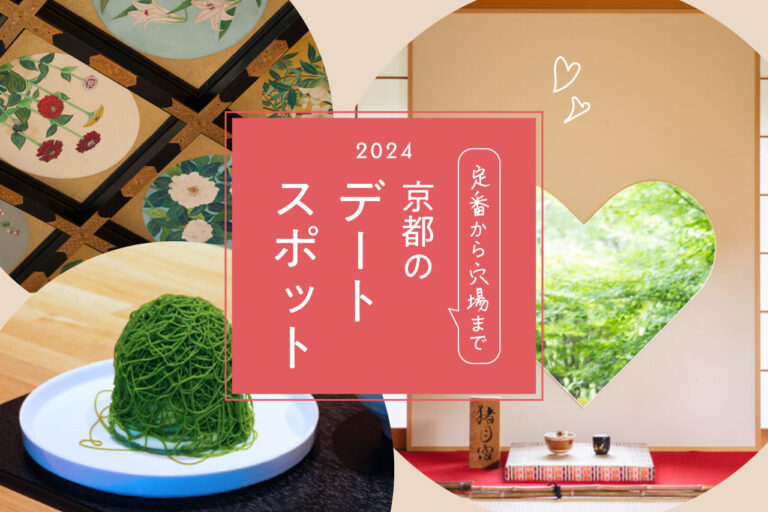
[2024] From classic to hidden gems! Recommended Dates in Kyoto...
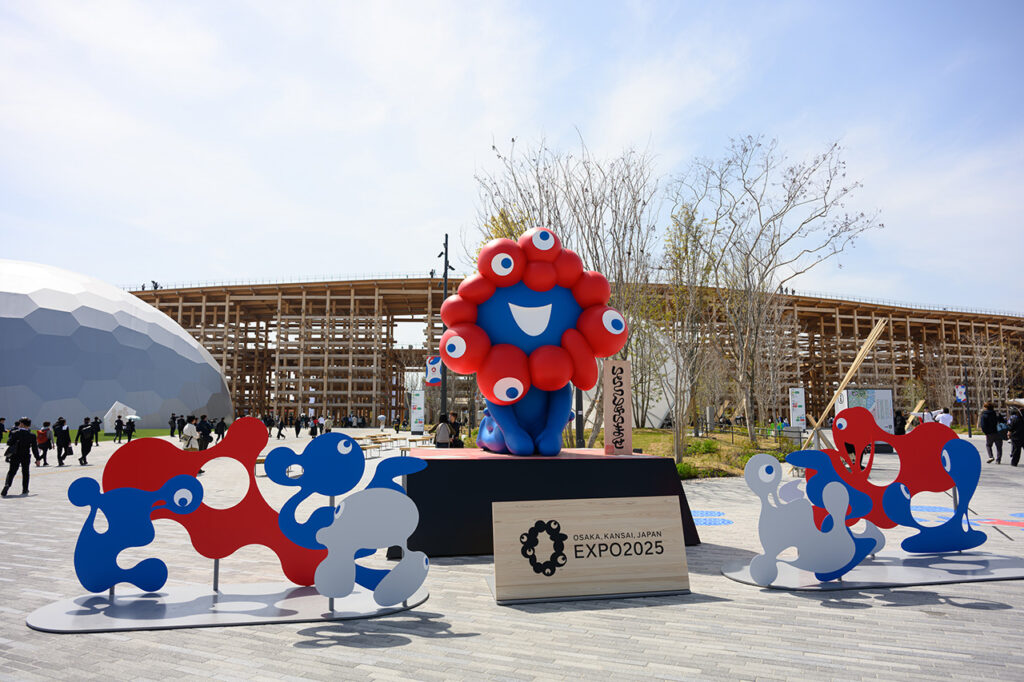

EXPO 2025 Osaka-Kansai (official name: Japan International Exposition 2025) will be held in Yumeshima, Osaka from April 13 (Sunday) to October 13 (Monday, holiday), 2025. With the participation of about 150 countries and 25 international organizations, this international exposition is attracting a lot of attention from overseas. Many people may be interested in this event. The Leaf editorial staff went undercover to learn that Kyoto Prefecture is also exhibiting at the expo! We will introduce various areas and pavilions related to Kyoto, including the Kansai Pavilion, where the Kyoto Prefecture booth will be exhibited. (PHOTO/Masuda Emi, TEXT/EDIT/Moe Sawamura)
Under the theme of "Designing a Future Society that Shines with Life," this international exposition aims to bring together the world's wisdom, including cutting-edge technology, and to serve as a venue for the creation and dissemination of new ideas. Yumeshima, Osaka, the site of the exposition, is a 390-hectare man-made island created from construction sand and other materials, and the main venue for the exposition will be built on top of it. The symbolic roof ring is a wooden structure approximately 2 km long, 20 m high, and 615 m in diameter. It is constructed using modern construction methods in addition to the traditional Nuki joints used in the construction of Japanese shrines and temples.


Located in the center of the Expo site, it is structured like a giant corridor connecting the pavilions, and its symbolic design expressing "connection, circulation, and symbiosis" gives it a strong presence. While also serving as a shelter from rain and sun, it is a space where visitors can interact with nature.
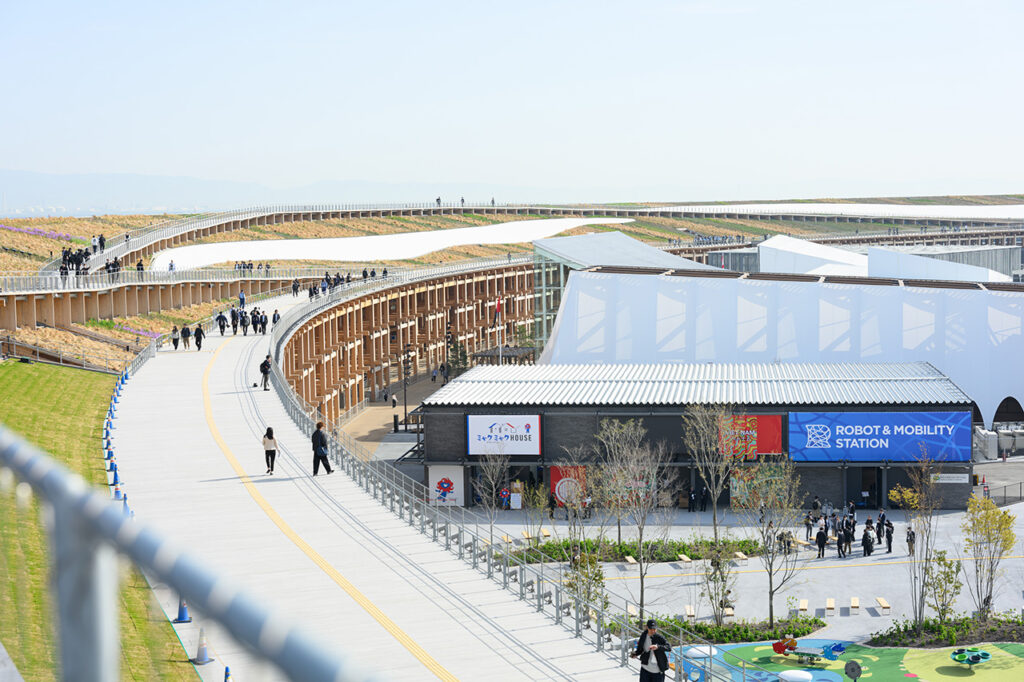

Escalators and elevators are installed in some areas, and there is a structure that allows people to walk up to the ring. It is truly designed as a "walking experience of the Expo. I actually went up and walked around the ring and found it to be so large that it was difficult to get a good grasp of where I was facing! It is a space like an observation walk where you can see the entire pavilion and the view of Yumeshima, so be sure to check it out.
The Kansai Pavilion, under the theme of "Life Shining in Kansai's Eternal History and Present," will feature exhibits from nine prefectures, including Kyoto, Shiga, Hyogo, Nara, Wakayama, and Mie, as well as neighboring prefectures Tottori, Tokushima, and Fukui. The exhibition will feature a variety of historical, cultural, and sightseeing attractions from various parts of the Kansai region, including Kyoto, Shiga, Hyogo, Nara, Wakayama, and Mie prefectures.
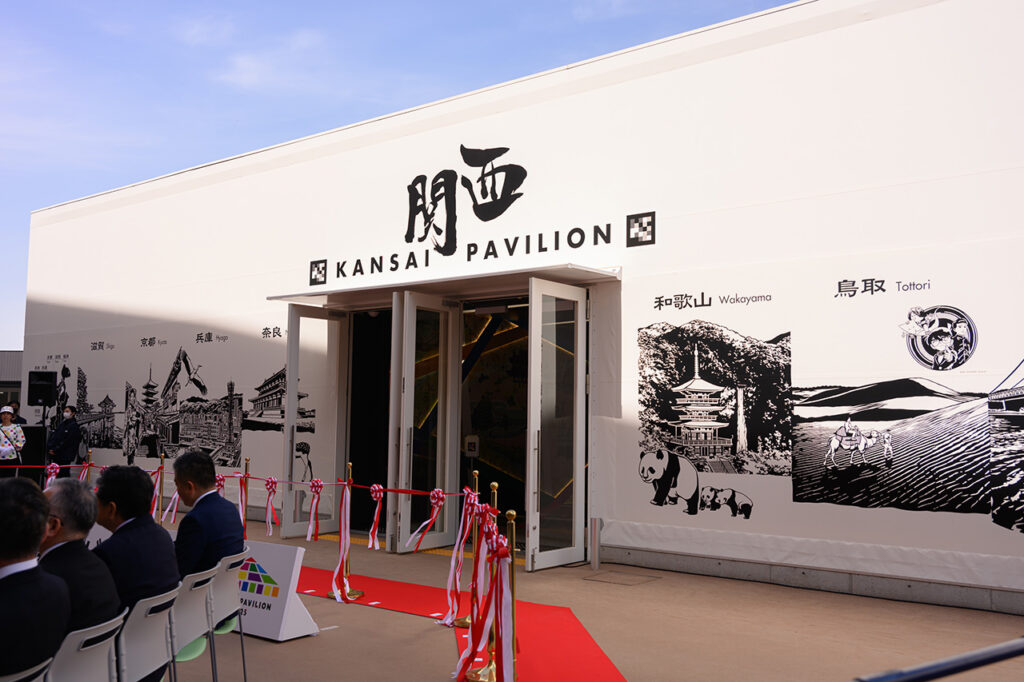
The exterior of the building, which resembles a lantern made of hexagons and white membranes, is designed with paper cutouts symbolizing various regions of the Kansai region.

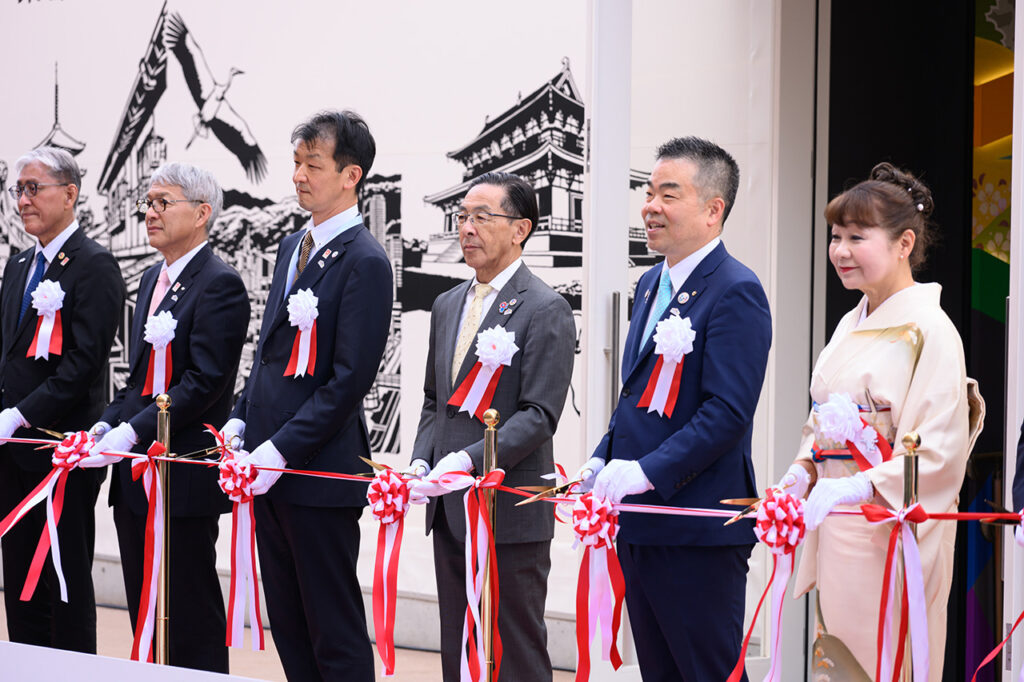
The opening ceremony of the Kansai Pavilion was held on the same day, and Governor Nishiwaki of Kyoto Prefecture took the stage.



The Kansai Pavilion consists of an entrance zone that stretches straight out from the entrance and a 12-meter-high atrium, the Center Circle. It is a place to introduce the Kansai region, which has long been the center of Japan, and its good points, and to let visitors experience how happy people who come, live, and work there are and can be.
The Kyoto zone is designed as a quiet and deep space where tradition and creativity resonate. The floor and walls are composed of "kimono tiles" jointly developed by Sandwich and Akihisa Asada of Asada Tile Works, whose geometric yet irregularly rhythmic design gives expression and depth to the space, like the frontal seam of a kimono.
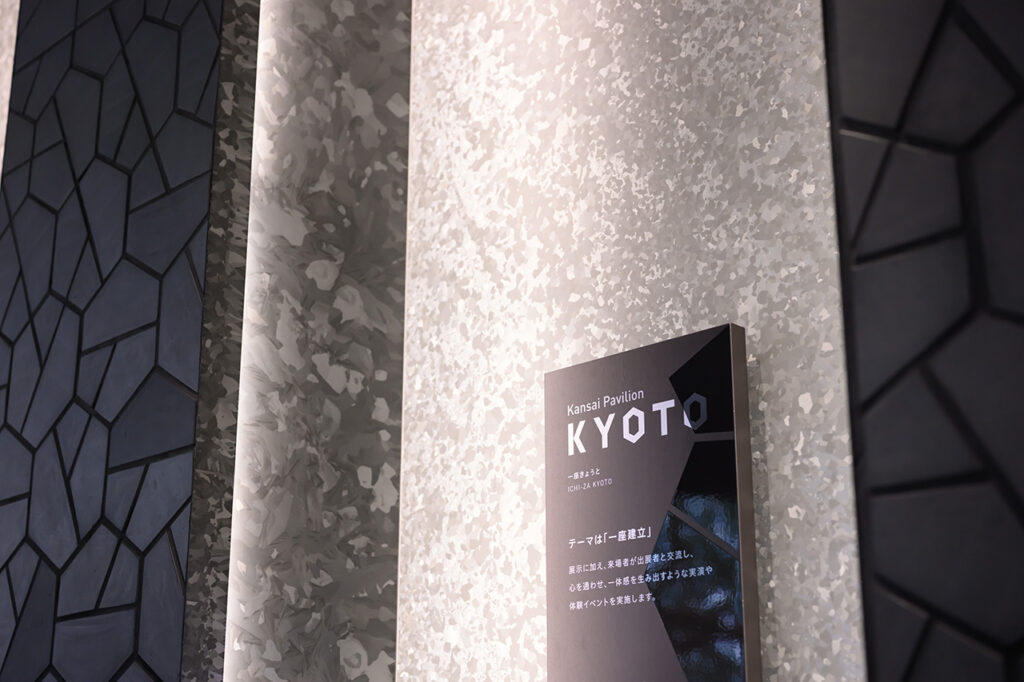

In the exhibition hall, video clips created by filmmaker Shinpei Yamada and others will be shown along with music by composer Marihiko Hara to accompany the six categories of "Culture," "Food," "Industry," "Environment," "Life," and "Tourism," which change approximately once a week. As the photos selected for each category quietly change, the music is interspersed with natural sounds such as the murmuring of the river, allowing visitors to experience the "Kyoto-ness" of the city through all five senses.
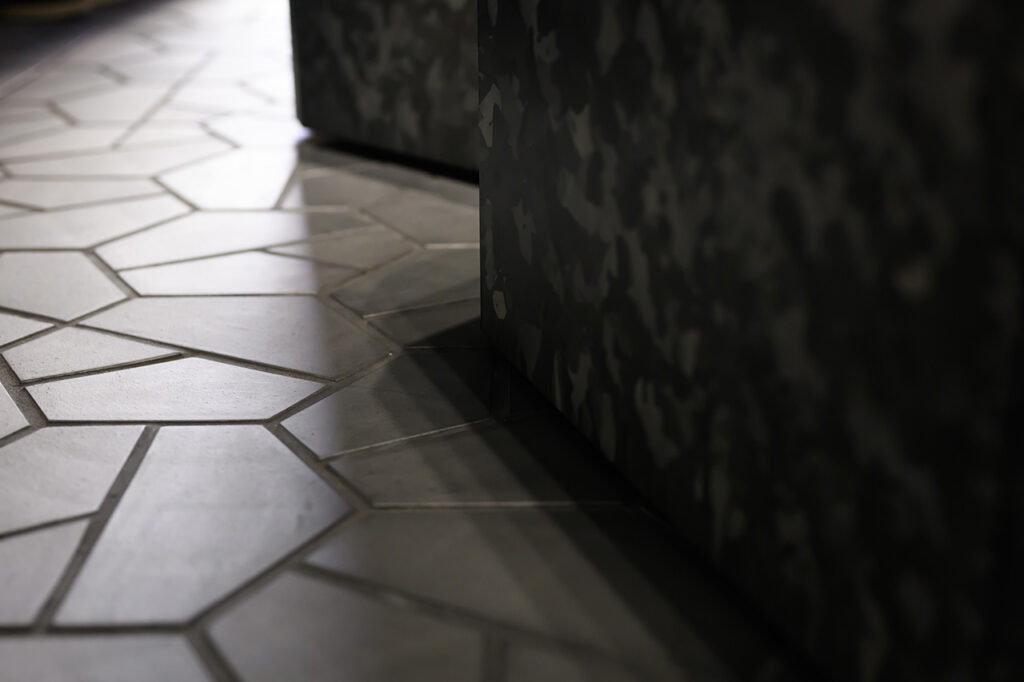
The table on which the exhibits are placed also follows the same kimono tile shape, and every detail is set up with a sense of unity.

At the entrance of the zone, visitors are greeted by "Shoki-san," a decorative tile used in machiya houses in Kyoto and Nara to ward off evil spirits. The somewhat adorable Shoki-san, who looks away from the viewer for a moment, is also a sight to behold.
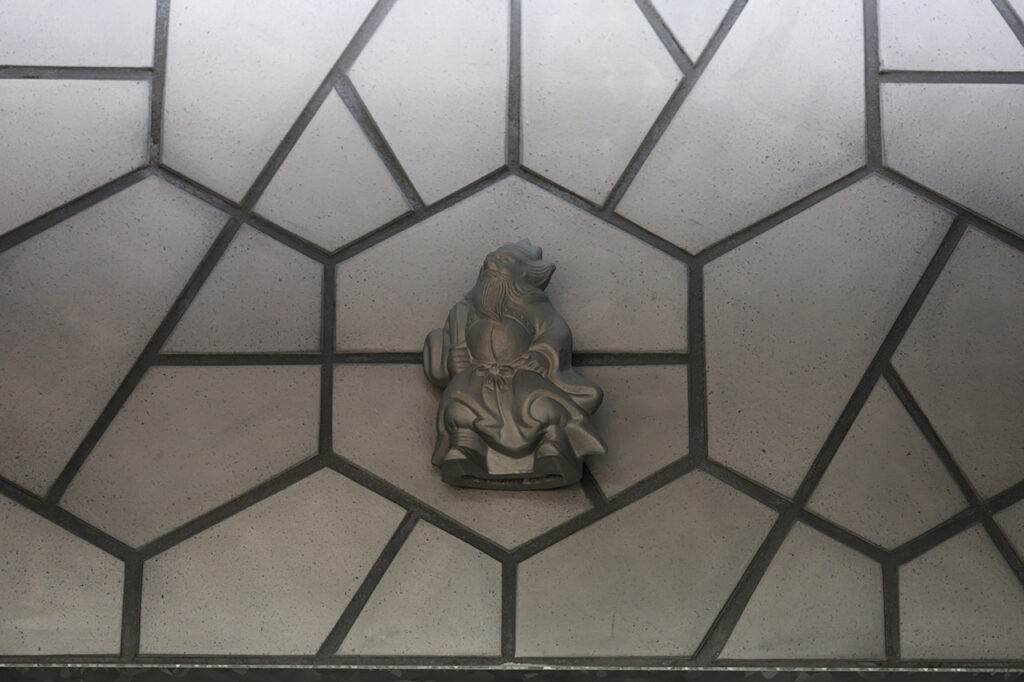

The space was designed by Sandwich, a creative platform headed by Kohei Nawa, a sculptor active in Japan and abroad, who blends traditional materials with the sensibilities of contemporary art to create a unique experience.
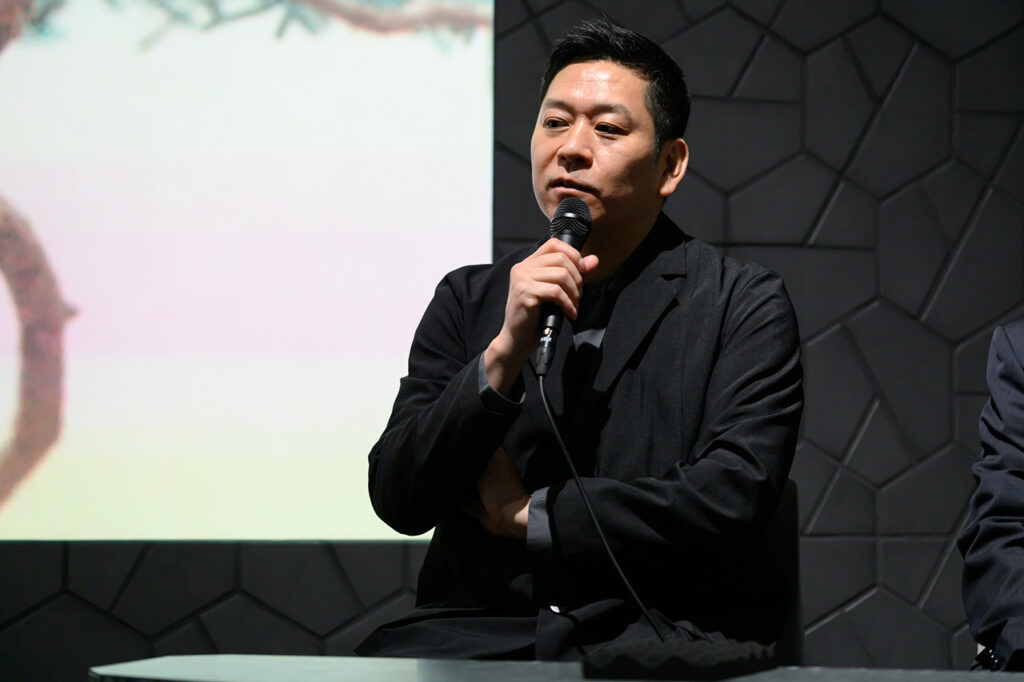
Sculptor Kohei Nawa

The theme of the Kyoto zone is "Ichiza-konryu. It is intended to be a place not only for viewing exhibits, but also a place where exhibitors, artists, and visitors can interact and connect with each other. We invite you to experience a special moment of encounter with contemporary Kyoto in a relaxed atmosphere.
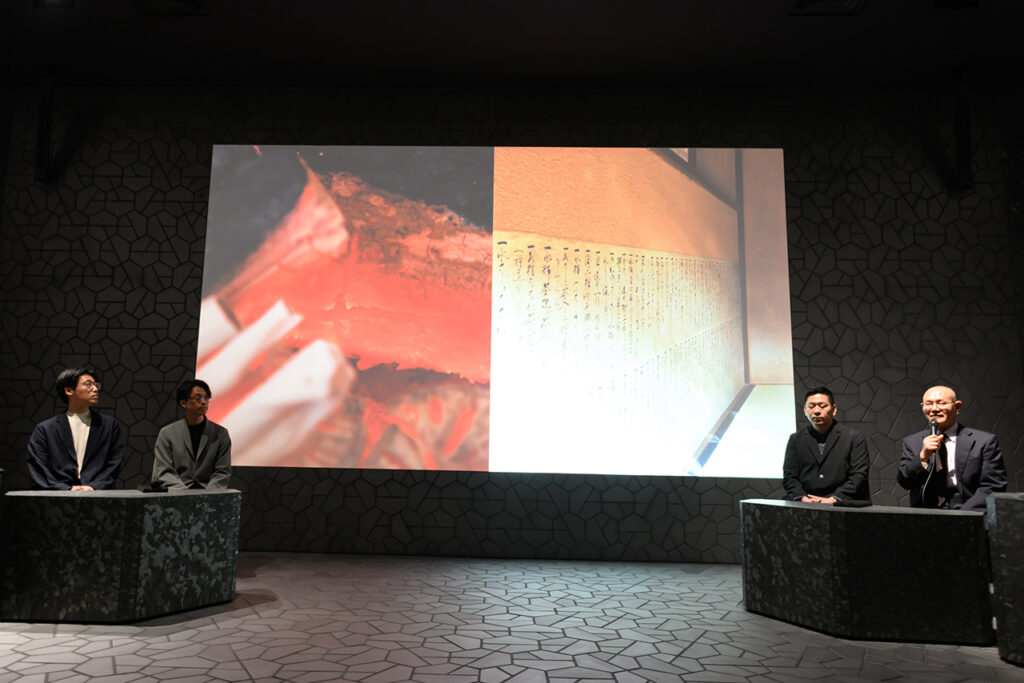

This eye-catching pavilion, with a surface area of approximately 3,500 m2 of specially treated Nishijin brocade fabric, covers the entire surface of the pavilion. The pavilion is a joint exhibition by the Iida Group and Osaka Public University, and introduces new technologies for a decarbonized society, as well as "futuristic housing" and "urban development" for a healthy and comfortable life. Nishijin textile, with its 1,200-year history and technology, was used for the exterior walls of the pavilion to express the time axis connecting the past and the future.
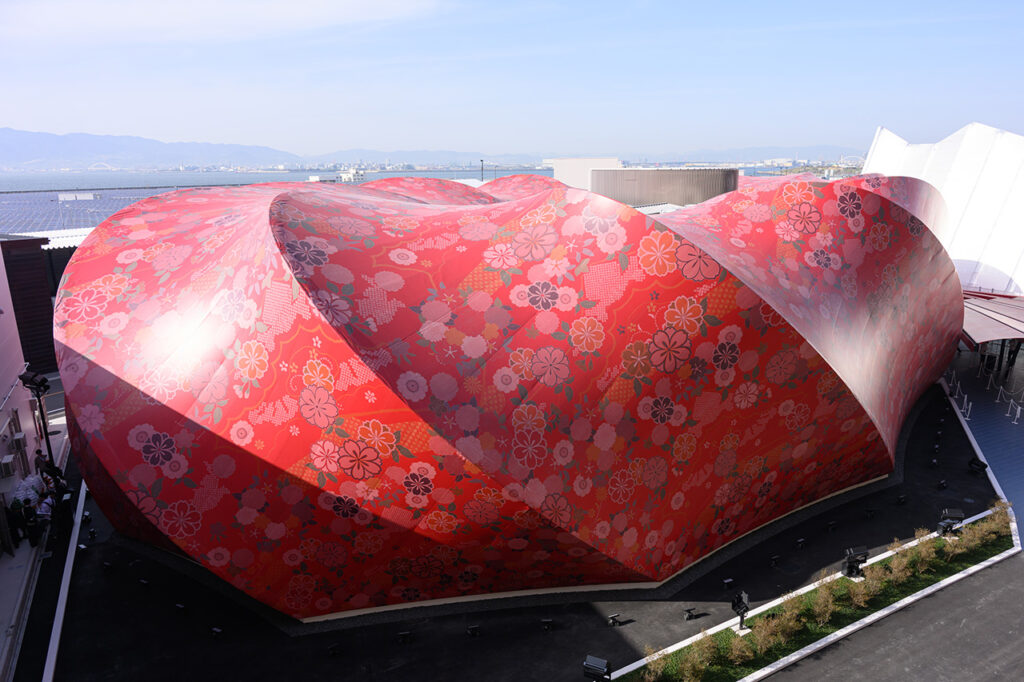
Iida Group & Osaka Public University Joint Exhibition Pavilion "Nishijin Textile Pavilion

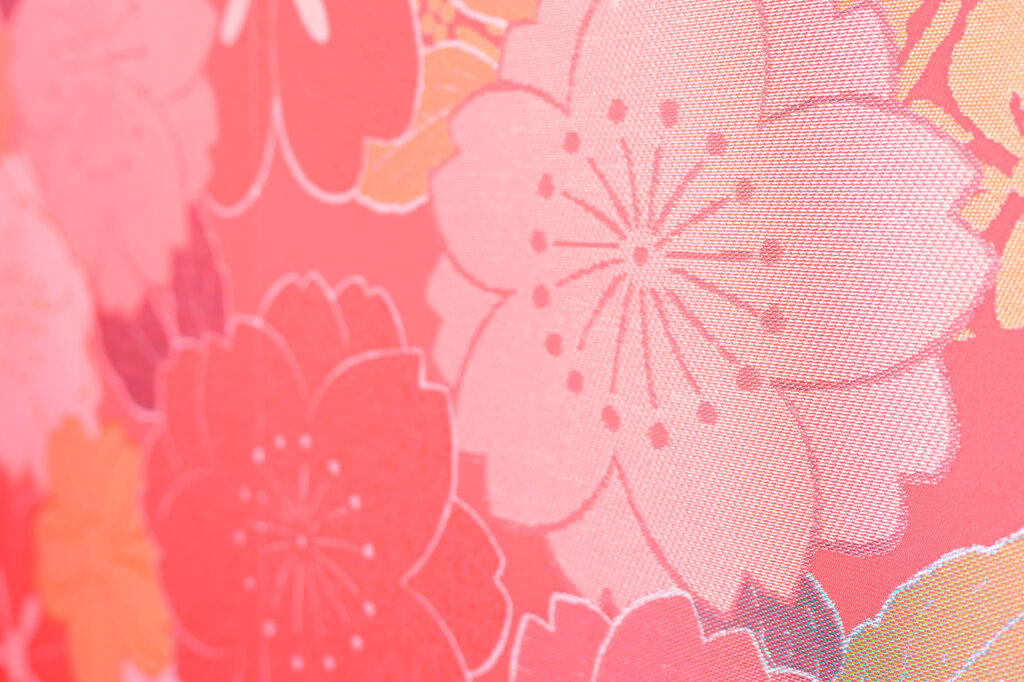

I was fascinated by its beautiful appearance and size, just as I saw it in the picture. See for yourself the designs made of Nishijin brocade, a traditional fabric of Kyoto.
After enjoying a tour of the pavilions, one of the last things to do is to pick out a small souvenir. The sales booths will feature food and crafts from Kyoto and will be rotated on a weekly basis by 12 of the approximately 160 member companies of the Kyoto Products Exhibitors Association. The furoshiki cloth, which was made in cooperation with Eirakuya, a long-established tenugui towel specialty store, and which was designed to commemorate the 70th anniversary of the Kyoto Products Exhibitors Association and is used as the curtain decorating the store, will also be on display for purchase! One of the attractions of this event is that visitors can collect furoshiki that are lying around at home and use them as plastic bags to take home their purchases. Why not get a souvenir from Kyoto as a memento of the Expo?
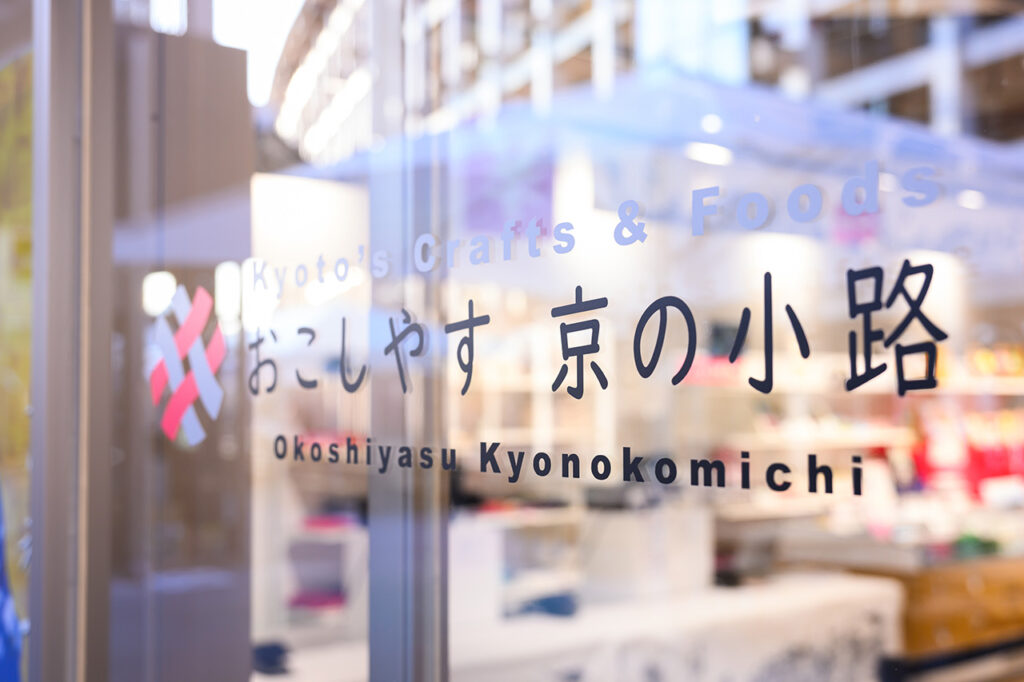

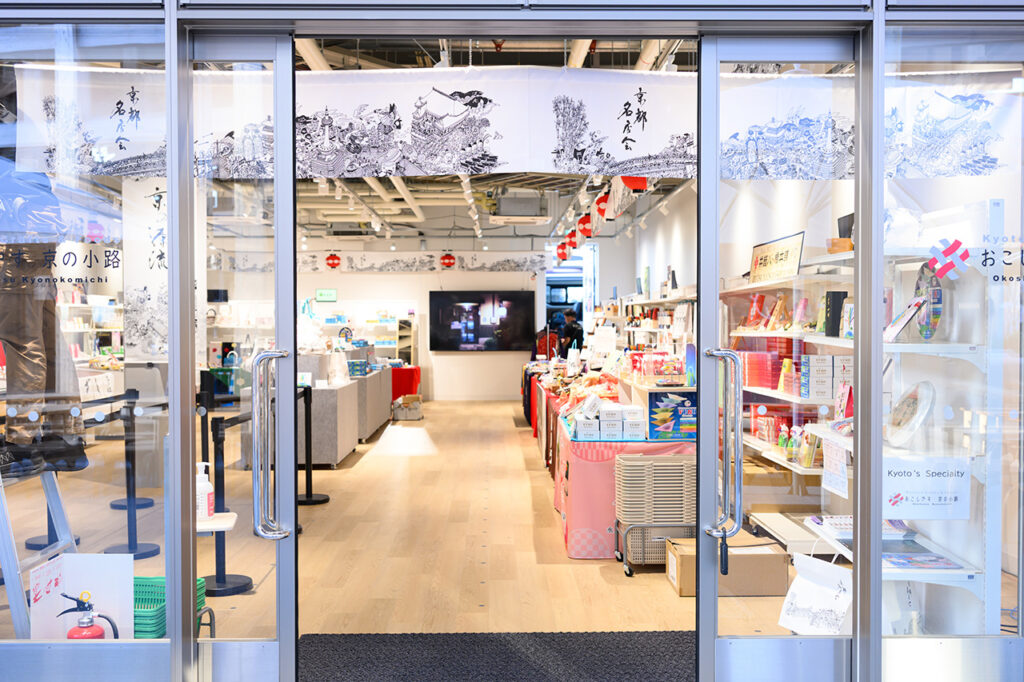

I could feel "Kyoto" in various places in the Expo site, and it was like a theme park, which kept me excited from start to finish. It was so much bigger than I had imagined that I could not spend enough time there and wanted to visit again and again during the Expo. I found myself feeling relaxed and at ease as I watched the exhibition, which depicted Kyoto as it is and as it was in the past, while respecting its traditions and culture. Visit the Expo site, where you can feel the charm of Kyoto with all your senses, and experience a new Kyoto.
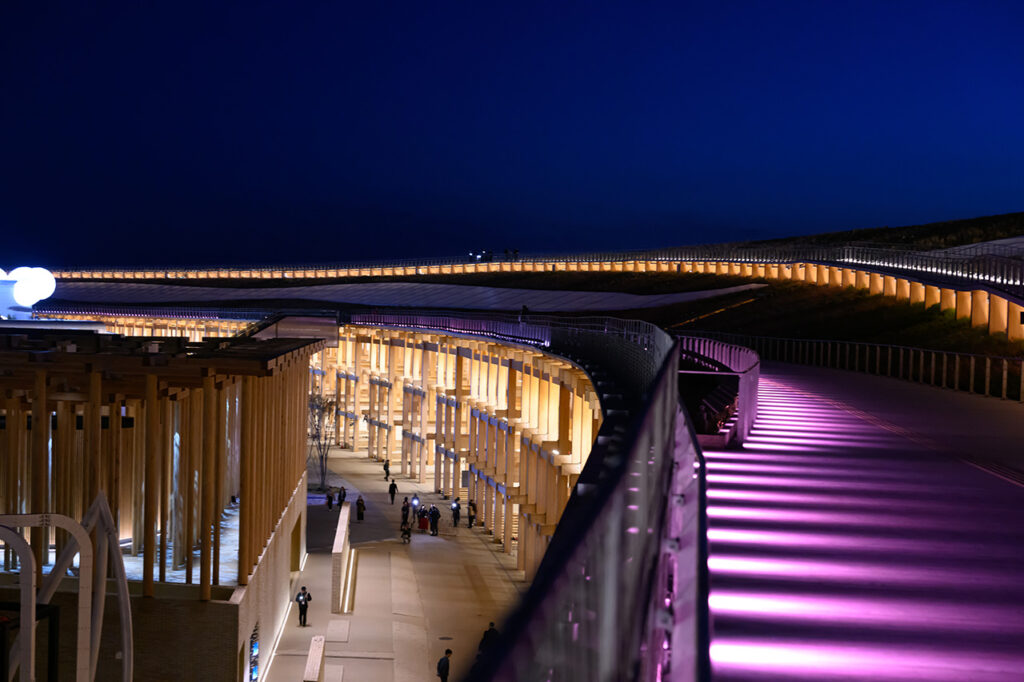

Over 600 interviews per year! An order site carefully selected by the editors who knows Kyoto and Shiga.
nowOfficial LINE friend registration500 yen OFF coupon is being issued!
Distributed every Friday morning at 8:00 am! From new restaurant information to event information that we want to share with you, We deliver articles about Kyoto that are useful to know. About 20,000 people have registered.Click here to add a friend!
 News
News Feature article
Feature article Featured event
Featured event